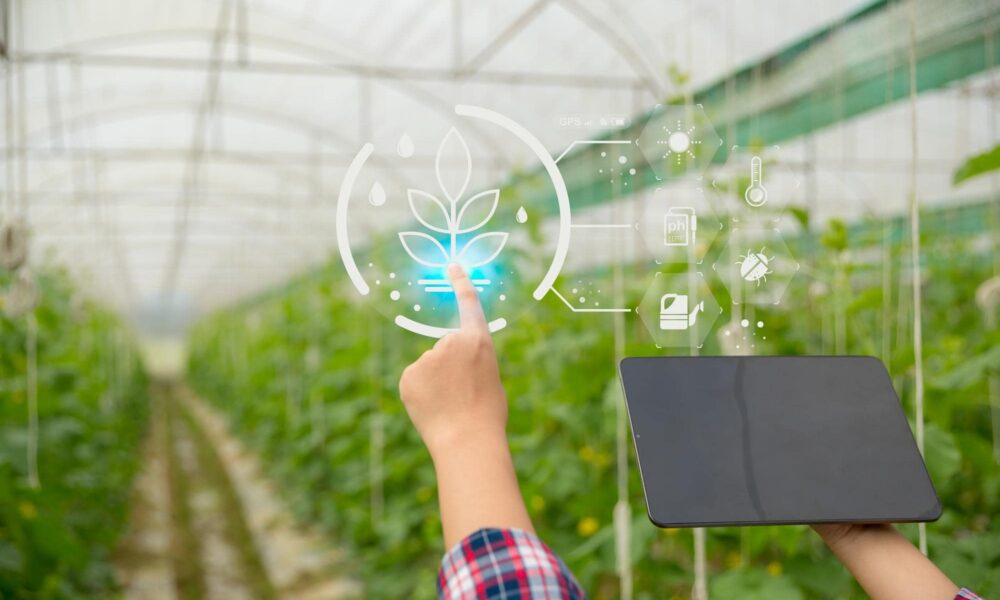In recent years, the integration of Internet of Things (IoT) solutions in agriculture has given rise to a revolutionary approach known as smart farming. By combining IoT technologies with traditional farming practices, farmers can optimize crop production, reduce resource wastage, and enhance sustainability. In this blog, we will explore how IoT solutions are transforming the agricultural landscape, improving crop yields, and promoting sustainable farming practices.
Understanding Smart Farming
Smart farming, also known as precision agriculture, involves the use of IoT solutions to gather real-time data and make data-driven decisions in farming operations. By deploying various sensors, drones, and other IoT devices, farmers can monitor and manage their crops with unprecedented precision.
The Role of IoT Solutions in Smart Farming
IoT solutions provide a network of interconnected devices that collect and transmit valuable data in real-time. These solutions enable farmers to monitor crucial factors such as soil moisture, temperature, humidity, and crop health. The data gathered from IoT devices is then analyzed to optimize farming practices and maximize crop yields.
Benefits of Smart Farming with IoT Solutions
By embracing smart farming with IoT solutions, farmers can reap several benefits, including:
- Improved crop yields: Real-time data on soil conditions, weather patterns, and crop health allow farmers to make informed decisions to maximize productivity.
- Efficient resource management: IoT solutions enable precise irrigation and fertilization, reducing water and fertilizer wastage.
- Enhanced pest control: IoT sensors can detect pest infestations early, enabling targeted interventions and minimizing the use of pesticides.
- Predictive analytics: By analyzing historical and real-time data, farmers can predict crop diseases, optimize planting schedules, and optimize resource allocation.
IoT Solutions in Action
Soil Monitoring and Irrigation Systems
IoT-enabled soil sensors can provide accurate readings of soil moisture, pH levels, and nutrient content. This data helps farmers determine the optimal irrigation and fertilization schedules, ensuring the right amount of resources are applied at the right time.
Crop Health Monitoring
By deploying IoT devices such as drones and remote sensing technologies, farmers can monitor the health of their crops. This includes detecting signs of nutrient deficiencies, diseases, and pests. With this information, farmers can take timely action to prevent crop damage and improve overall yield.
Automated Farming Systems
IoT solutions enable the automation of various farming processes. For example, smart irrigation systems can adjust water supply based on real-time data, reducing water waste. Automated machinery and robotic systems can also perform tasks such as planting, harvesting, and sorting with precision and efficiency.
Sustainable Farming with IoT
Water Conservation
Water scarcity is a pressing issue in agriculture. IoT solutions help farmers conserve water by providing real-time data on soil moisture levels, weather conditions, and evaporation rates. With this information, farmers can optimize irrigation schedules and reduce water consumption.
Energy Efficiency
Smart farming with IoT solutions allows farmers to optimize energy consumption. By monitoring energy usage in various farming operations, farmers can identify areas of inefficiency and implement measures to reduce energy waste, thereby promoting sustainable practices.
Environmental Monitoring
IoT sensors can monitor environmental parameters such as air quality, temperature, and humidity. This data helps farmers assess the impact of their farming activities on the environment and make adjustments to minimize negative effects.
Conclusion
Smart farming with IoT solutions is transforming the agricultural sector, improving crop yields, and promoting sustainable farming practices. By leveraging real-time data, automation, and predictive analytics, farmers can make informed decisions, optimize resource allocation, and enhance overall productivity. The integration of IoT solutions in farming operations offers immense potential for increased efficiency, reduced environmental impact, and a more sustainable future for agriculture.
FAQs (Frequently Asked Questions)
Q: What is smart farming?
A: Smart farming, also known as precision agriculture, refers to the use of IoT solutions and technologies to optimize farming practices, improve productivity, and enhance sustainability.
Q: How do IoT solutions benefit smart farming?
A: IoT solutions provide real-time data on soil conditions, weather patterns, crop health, and resource usage. This data helps farmers make data-driven decisions, optimize resource allocation, and improve crop yields.
Q: Can small-scale farmers adopt smart farming with IoT solutions?
A: Yes, IoT solutions can be scaled and customized to meet the needs of small-scale farmers. Affordable IoT devices and platforms are available, making it accessible to farmers of all scales.
Q: How does smart farming contribute to sustainability?
A: Smart farming promotes sustainability by optimizing resource usage, reducing water and fertilizer wastage, minimizing the use of pesticides, and adopting environmentally friendly practices.
Q: Are there any challenges in implementing IoT solutions in smart farming?
A: Implementing IoT solutions in smart farming requires reliable connectivity, data security, and technical know-how. However, the benefits of increased productivity, resource efficiency, and sustainability outweigh the challenges.

